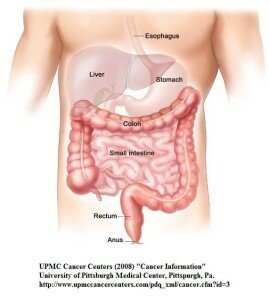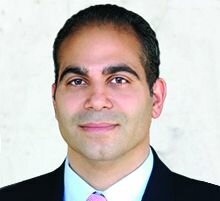 Anyone can suffer from anal fissures, whether young or old, male or female. Anal fissures, also known as a fissure in the anus, are tears in the lining of the lower rectum (anus) that cause pain during bowel movements. Often painful and severe, this condition is responsible for 6 to 15% of visits to a colorectal surgeon.
Anyone can suffer from anal fissures, whether young or old, male or female. Anal fissures, also known as a fissure in the anus, are tears in the lining of the lower rectum (anus) that cause pain during bowel movements. Often painful and severe, this condition is responsible for 6 to 15% of visits to a colorectal surgeon.
Fortunately, there are several ways to treat the condition, both non-surgically and surgically.
Leading experts in their field, the colorectal surgeons at La Peer’s Fissure & Fistula Center of Excellence in Los Angeles formulate individualized treatment plans for patients with colon and rectal disorders, including anal fissures. Patients who opt to visit our world-renowned center receive an unparalleled quality of service and care. They also benefit from our knowledge and expertise in the very latest surgical procedures.
Request your consultation today.
Call us at 888.512.2312 to schedule an appointment or:
Anal Tear Treatment
Fissures typically heal within a few weeks through basic self-care steps, such as increasing fluid intake, taking fiber, soaking in water and other steps that relax the sphincter and promote healing. If your symptoms persist, you’ll likely need further treatment. Our Fissure & Fistula Center of Excellence offers a variety of treatment options to patients.
Non-Surgical Treatments
- Topical treatment including nitroglycerin, calcium channel blockers and other steroid creams. Externally applied nitroglycerin helps increase blood flow to the fissure and promote healing while relaxing the anal sphincter. Nitroglycerin is generally considered the medical treatment of choice when other conservative measures fail. Calcium channel blockers work by decreasing resting anal pressures. Additionally, there are steroid creams that help relieve discomfort.
- BOTOX® (botulinum toxin) injections help to paralyze the anal sphincter muscle and relax spasms.
Surgical Treatment
If you have a chronic anal fissure (or anal tear) that is resistant to other treatments, or if your symptoms are severe, surgery may be recommended. There are several surgical treatment methods for fissures.
- Lateral Internal Sphincterotomy (LIS) is the surgical procedure of choice for anal fissures due to its simplicity and high success rate of approximately 95%. In this procedure, the internal anal sphincter is partially divided in order to reduce spasms and improve the blood supply to the perianal area. This improvement in the blood supply helps to heal the fissure. Post surgery, patients can return to normal activity within a week.
- Dermal Flap Coverage uses skin flaps for coverage of the fissure and offers reduced complications following surgery.
- Anal Dilation (Lord’s Operation), or stretching of the anal canal, is a less commonly prescribed surgical option due to a increased risk of incontinence.
Why Choose Our Los Angeles Surgeons?
Our colorectal surgeons are experts in the surgical and non-surgical treatment of diseases of the colon, rectum and anus. They have completed advanced surgical training in the treatment of these diseases as well as full general surgical training. As board-certified colon and rectal surgeons, they have completed residencies in general surgery and colon and rectal surgery and have passed intensive examinations conducted by the American Board of Surgery and the American Board of Colon and Rectal Surgery. Our surgeons are well versed in the treatment of both benign and malignant diseases of the colon, rectum and anus and are able to perform routine screening examinations as well as cutting-edge surgical treatments.
To schedule a consultation with one of our skilled surgeons in Los Angeles, fill out our online contact form or call (888) 512-2312.
We’d love to verify your insurance for you. Fill out our Free Insurance Verification form!
Please read this article from WedMd on Anal Fissures.
Next, learn about anal fistulas.









